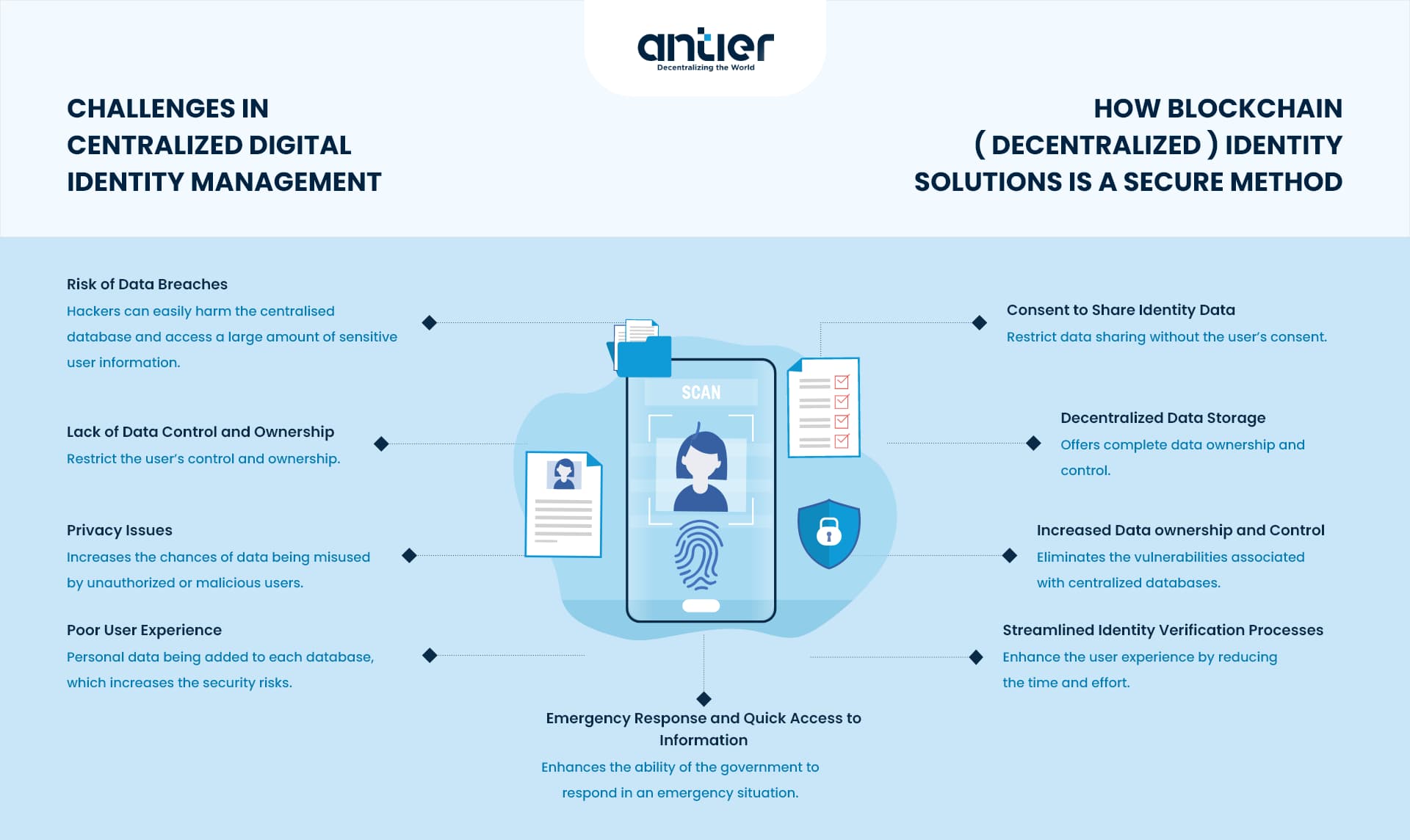How Decentralized Identity Solutions Are Emerging

- Understanding the concept of decentralized identity
- The benefits of decentralized identity solutions
- Challenges in implementing decentralized identity systems
- Key players in the decentralized identity space
- Use cases for decentralized identity solutions
- The future of decentralized identity technology
Understanding the concept of decentralized identity
Decentralized identity is a concept that is gaining traction in the digital world. It refers to the idea of individuals having control over their own digital identities without the need for a central authority. This means that users can manage their personal information, such as their name, age, and address, without relying on a third party to verify it.
One of the key benefits of decentralized identity is increased privacy and security. With traditional identity systems, personal data is stored in centralized databases, making it vulnerable to hacks and breaches. In contrast, decentralized identity solutions use blockchain technology to securely store and verify information, reducing the risk of unauthorized access.
Another advantage of decentralized identity is the ability to streamline identity verification processes. Instead of having to repeatedly verify their identity with different organizations, users can use their decentralized identity to access services across various platforms seamlessly. This not only saves time but also reduces the likelihood of identity theft.
Overall, decentralized identity solutions are emerging as a promising alternative to traditional identity systems. By giving individuals more control over their personal information and enhancing privacy and security, decentralized identity has the potential to revolutionize the way we manage and protect our identities online.
The benefits of decentralized identity solutions
Decentralized identity solutions offer a wide range of benefits that are revolutionizing the way we think about identity management. One of the key advantages is the enhanced security they provide. By distributing identity data across a network of nodes, decentralized solutions make it much harder for hackers to access and exploit sensitive information. This increased security can help protect individuals and organizations from data breaches and identity theft.
Another benefit of decentralized identity solutions is the improved privacy they offer. With traditional identity systems, individuals often have little control over who can access their personal information. Decentralized solutions, on the other hand, give users more autonomy over their data, allowing them to choose what information to share and with whom. This can help prevent the misuse of personal data and give individuals greater peace of mind.
Decentralized identity solutions also promote interoperability and portability. With traditional identity systems, individuals often have to create separate accounts and profiles for each service they use. Decentralized solutions, however, allow users to create a single digital identity that can be used across multiple platforms and services. This not only streamlines the user experience but also reduces the risk of data fragmentation and duplication.
Challenges in implementing decentralized identity systems
Implementing decentralized identity systems comes with its own set of challenges that organizations need to address. These challenges can range from technical complexities to regulatory hurdles. Some of the key challenges in implementing decentralized identity solutions include:
- Lack of standardization: One of the main challenges is the lack of standardized protocols and frameworks for decentralized identity systems. This can make it difficult for different systems to interoperate seamlessly.
- Scalability issues: Another challenge is the scalability of decentralized identity solutions. As the number of users and transactions grows, the system needs to be able to handle the increased load efficiently.
- Security concerns: Security is a major concern when it comes to decentralized identity systems. Ensuring the privacy and security of user data is crucial to gaining trust and adoption.
- Regulatory compliance: Meeting regulatory requirements can be a challenge for organizations implementing decentralized identity solutions. Compliance with data protection laws and regulations is essential.
- User adoption: Getting users to adopt decentralized identity solutions can be a challenge. Educating users about the benefits and how to use the system effectively is key to driving adoption.
Despite these challenges, the emergence of decentralized identity solutions is a promising development in the digital identity space. By addressing these challenges effectively, organizations can unlock the full potential of decentralized identity systems and revolutionize the way identities are managed and verified online.
Key players in the decentralized identity space
Several key players are making significant contributions to the decentralized identity space. These organizations are at the forefront of developing innovative solutions that prioritize user control and privacy. Some of the notable players in this field include:
- Microsoft: Microsoft has been actively involved in the development of decentralized identity solutions through its collaboration with the Decentralized Identity Foundation (DIF). The company has been working on projects such as the Identity Overlay Network (ION) to enable decentralized identifiers (DIDs) on the Bitcoin blockchain.
- IBM: IBM is another major player in the decentralized identity space, focusing on creating open standards and protocols for decentralized identity management. The company has been working on projects like Hyperledger Indy, which provides tools for building decentralized identity systems.
- Consensys: Consensys is a blockchain technology company that has been actively involved in developing decentralized identity solutions. The company has created uPort, a self-sovereign identity platform that allows users to control their digital identities securely.
- Verifiable Credentials: Verifiable Credentials is a W3C standard that enables the issuance and verification of digital credentials in a decentralized manner. This standard is being adopted by various organizations to enable secure and privacy-preserving identity solutions.
These key players are driving innovation in the decentralized identity space and are paving the way for a more secure and user-centric approach to identity management. By collaborating and developing open standards, these organizations are shaping the future of digital identity.
Use cases for decentralized identity solutions
Decentralized identity solutions offer a wide range of use cases that can revolutionize the way individuals and organizations manage their identities online. Some of the key applications of decentralized identity solutions include:
- Secure and private authentication: Decentralized identity solutions enable users to securely authenticate themselves without relying on a central authority. This can help prevent identity theft and fraud.
- Self-sovereign identity: With decentralized identity solutions, individuals have full control over their own identity information. This means they can choose what information to share and with whom, enhancing privacy and security.
- Streamlined user onboarding: Decentralized identity solutions can simplify the process of onboarding new users by allowing them to reuse their identities across different platforms and services.
- Reduced data breaches: By decentralizing identity information, the risk of large-scale data breaches is minimized, as there is no longer a single point of failure for hackers to exploit.
- Improved regulatory compliance: Decentralized identity solutions can help organizations comply with data protection regulations such as GDPR by giving users more control over their personal data.
Overall, decentralized identity solutions have the potential to transform the way we think about identity management in the digital age, offering increased security, privacy, and control to both individuals and organizations.
The future of decentralized identity technology
The future of decentralized identity technology looks promising as more and more companies and individuals are recognizing the benefits of this innovative approach. Decentralized identity solutions offer a secure and efficient way to manage digital identities without relying on a central authority. This technology is based on the principles of self-sovereignty, giving users full control over their personal information.
One of the key advantages of decentralized identity technology is its ability to enhance privacy and security. By eliminating the need for third-party intermediaries, users can protect their data from unauthorized access and potential breaches. This not only reduces the risk of identity theft but also gives individuals peace of mind knowing that their information is safe and secure.
Furthermore, decentralized identity solutions are designed to be interoperable, allowing users to seamlessly access services and applications across different platforms. This level of flexibility and convenience is essential in today’s digital world where people are constantly interacting with various online services.
As decentralized identity technology continues to evolve, we can expect to see more widespread adoption across industries such as finance, healthcare, and government. This will not only streamline processes and improve efficiency but also empower individuals to take control of their digital identities in a way that was not possible before.



